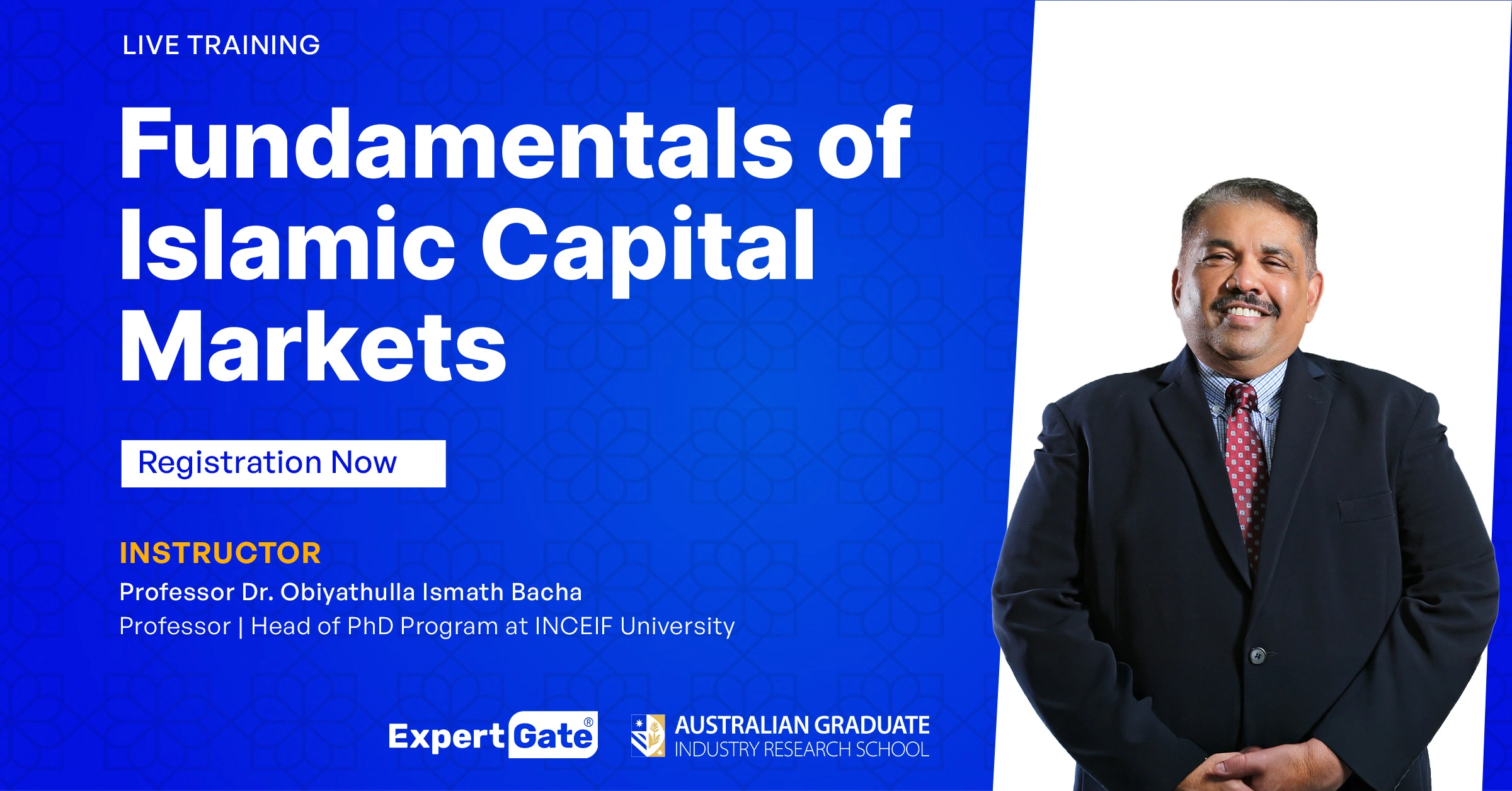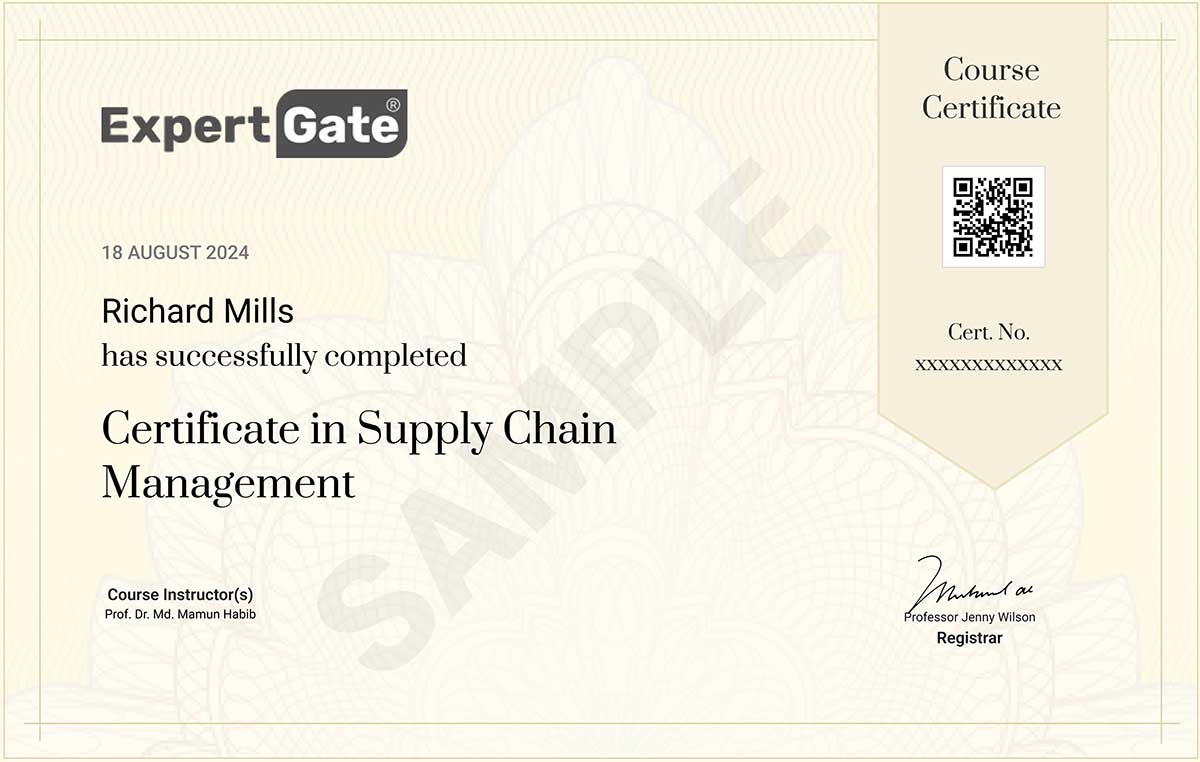Professional Certificate in Islamic Capital Markets

Overview
Instructors
Outcomes
Upon successful completion of the course, participants will achieve the following outcomes:
Structure
The course begins with an introduction to the core principles of Islamic finance. This week focuses on the ethical guidelines that form the foundation of Shariah-compliant investing. The prohibitions of Riba (interest), Maysir (gambling), and Gharar (uncertainty) will be discussed in-depth, exploring how these principles shape investment strategies. Risk-sharing is emphasized as the cornerstone of Islamic finance, offering an alternative to conventional financial models that prioritize risk transfer. Participants will learn about Islamic capital markets and how they differ from conventional markets, with a focus on key instruments such as Sukuk (Islamic bonds) and Islamic equity financing. The week will also explore the importance of transparency, fairness, and social responsibility in Islamic finance, setting the tone for the rest of the course.
Sukuk are central to Islamic capital markets, and this week provides participants with a detailed understanding of Sukuk as an investment instrument. Unlike conventional bonds, Sukuk are structured to comply with Islamic law by providing a return that is linked to the performance of an underlying asset rather than interest payments. Participants will learn the various types of Sukuk, such as Ijarah (leasing), Mudarabah (profit-sharing), and Murabaha (cost-plus financing). The week will also examine the challenges and opportunities in the issuance of Sukuk in non-Muslim majority countries. Participants will explore the global market for Sukuk, which has grown significantly in recent years, and understand its role in diversifying investment portfolios with ethical assets.
In Week 3, participants will delve into Islamic equity financing, one of the core components of Shariah-compliant investment strategies. The concept of equity financing in Islamic finance differs from conventional equity financing in that it is based on shared risk and profit. Participants will learn how to screen stocks for Shariah-compliance, ensuring that investments are made in industries and companies that adhere to Islamic ethical principles. The week will also explore Islamic equity funds, which provide investors with diversified access to Sharia-compliant stocks and other equity-based assets. Participants will understand the various screening processes used to identify halal (permissible) investment opportunities, and how to build a diversified portfolio of ethical stocks.
Week 4 will cover Islamic investment funds, which are structured to comply with Shariah principles. Participants will learn how these funds are different from conventional investment funds, particularly in terms of their investment strategies and ethical guidelines. The week will also focus on Islamic real estate investments, which have become increasingly popular as an ethical and profitable investment opportunity. Participants will gain insights into how real estate projects can be financed and structured in compliance with Islamic law. They will learn to evaluate Islamic real estate investment opportunities and assess their potential for long-term returns. Case studies of successful Islamic real estate projects will be used to illustrate how these investments are structured and managed.
The final week explores risk management principles in Islamic finance, which focus on equitable risk-sharing rather than risk transfer. Participants will learn about the different ways Islamic finance mitigates financial risk, including through profit-sharing and equity-based financing. The week will also address the growing importance of ethical investing in the global financial system, with an emphasis on sustainability, social responsibility, and long-term value creation. Finally, participants will examine emerging trends in Islamic capital markets, focusing on the future of Islamic finance and its role in the global economy. They will explore the growing demand for Sharia-compliant investment products and how Islamic finance can contribute to a more ethical and sustainable global financial system.
Assessment
Target Audience
Finance Professionals in Conventional Finance: Bankers, financial analysts, and investment managers who wish to expand their expertise by incorporating Shariah-compliant products into their portfolios and serving clients seeking ethical investment options.
Government Bankers: Bankers working in government institutions who need to understand the application of Islamic finance principles in public sector investments and capital markets.
Investors Seeking Ethical Investment Opportunities: Individuals interested in socially responsible investments will learn how to assess and evaluate Shariah-compliant financial products aligned with Islamic principles.
Wealth Managers, Financial Analysts, and Portfolio Managers: Professionals aiming to build and manage diversified, Shariah-compliant investment portfolios for clients seeking ethical wealth management.
Regulatory and Compliance Experts: Individuals working in finance law and regulation who need to understand the legal frameworks governing Islamic financial markets.
Financial Advisors and Planners: Advisors looking to serve clients who prioritize ethical investing by expanding their knowledge of Islamic finance principles and relevant financial products.
Students and Academics: Individuals pursuing careers or research in Islamic finance, who want to gain a comprehensive understanding of Islamic capital markets.
Recommended Resources
Certificates

